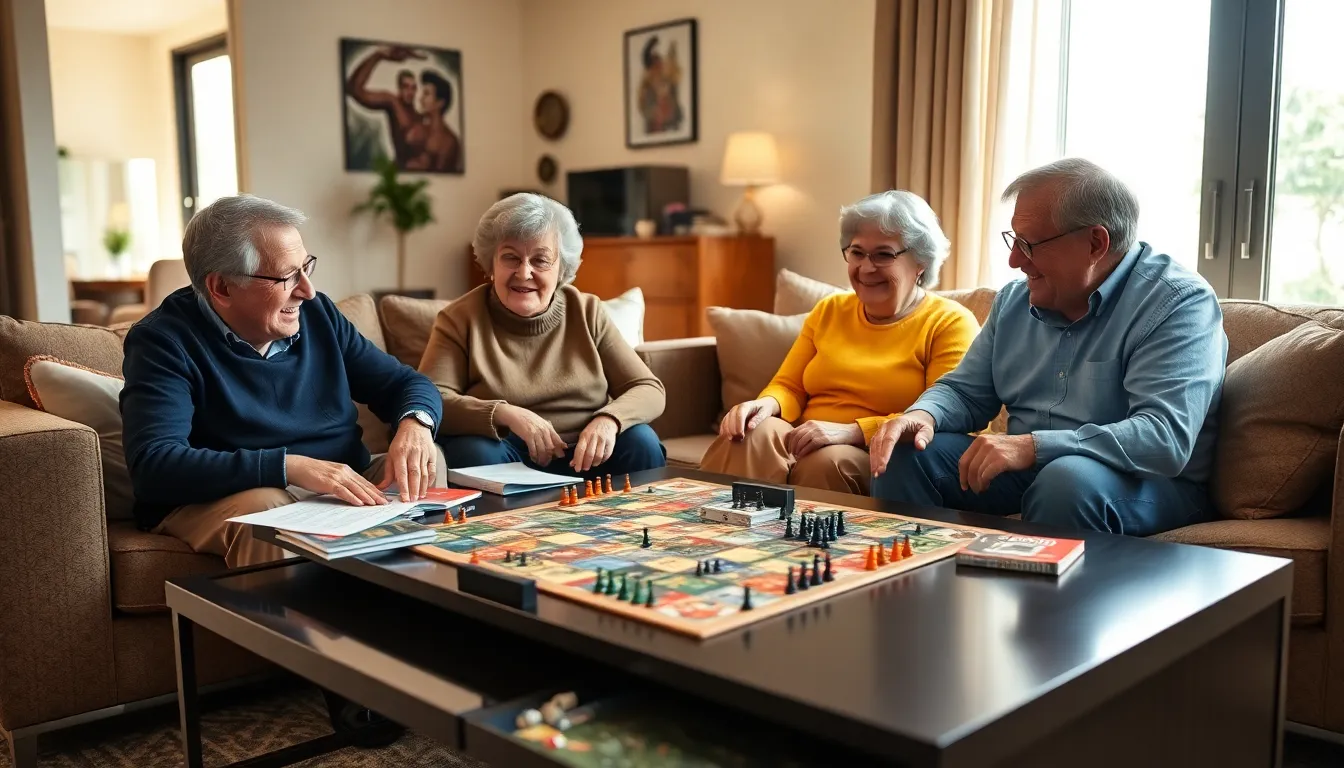Imagine a world where strategy meets laughter, and fun bridges the generation gap. Welcome to the vibrant universe of war games designed specifically for seniors, where a little bit of friendly competition can ignite joy and spark camaraderie. Whether it’s charging into battle or devising elaborate strategies over a cup of tea, war games can offer an invigorating escape for older adults. So grab your dice and a comfy chair, because this article will navigate through the captivating realms of war gaming tailored for the elder community. No need for a battlefield: all you need is a tabletop and a spirited group ready to unleash their inner general.
Table of Contents
ToggleUnderstanding The Appeal Of War Games For Seniors

War games have long held a magnetic charm, and this allure extends uniquely to senior players. The thrill of strategy and tactics engages the mind in ways many traditional leisure activities don’t. As we age, the need for mental stimulation grows, and war games provide just that. They encourage critical thinking, planning, and even negotiation skills, all while offering social interaction, the perfect recipe for boosting cognitive health.
Also, these games often evoke nostalgia. Many seniors grew up in eras where board games were staple entertainment. The memories tied to these games can rekindle happier times, making the gaming experience even more enjoyable. Think about it: diving into a battlefield of wits can stir fond recollections of youthful spontaneity. It’s not merely about competition: it’s a delightful dance of strategy reminiscent of carefree days.
Benefits Of War Games For Elderly Players
The benefits of war games extend well beyond just entertainment: they are a treasure trove of advantages for elderly players. To start with, they provide fantastic cognitive exercises. Each decision made in a game pushes the brain to engage in problem-solving, enhancing mental agility. This is valuable in combatting cognitive decline and keeping the mind sharp.
Also, these games foster social connections. Older adults often face social isolation, but gathering around a game can create bonds between friends and family. A simple game night can cultivate friendships and revive old ones, diminishing feelings of loneliness and encouraging a sense of community.
Besides, war games can boost emotional well-being. Engaging in a friendly competition releases endorphins, leading to improved mood and increased confidence. Whether winning or losing, the experience is enriched through laughter, banter, and sometimes a little friendly trash talk. The joy found in these moments often outweighs the outcome of the game.
Popular War Games Among Elderly Gamers
With a myriad of options available, finding the right war game can feel akin to searching for a needle in a haystack. But, some titles shine particularly bright among elderly gamers due to their accessibility and engaging gameplay.
Settlers of Catan is often at the top of the list, fostering both strategy and social interaction in a beautifully designed cardboard world. Its emphasis on resource management provides intriguing dynamics, appealing to players of all experience levels.
Ticket to Ride is another favorite, where players compete to build train routes across a map. Its straightforward mechanics and peaceful aesthetic make it perfect for relaxed gaming sessions among seniors.
For those craving deeper strategy, Axis & Allies delivers a more complex experience. This game encapsulates wartime tactics through both collaboration and competition. With its historical elements, it’s not just a game: it becomes an educational tool, igniting discussions about different eras.
Tips For Introducing War Games To Seniors
Introducing war games to seniors can be a rewarding journey, but it requires a thought-out approach to ensure everyone has fun. First and foremost, start simple. Choose games that are easy to learn but also engaging. Avoid overwhelming rules: instead, highlight aspects that intrigue participants.
Taking the time to explain the rules clearly is crucial, slow and steady wins the race. It might also help to play a practice round before delving into the main event, allowing players to grasp the mechanics without the pressure of competition.
Encourage patience and team play as well: many seniors thrive in cooperative setups. Pairing experienced players with newcomers can foster a friendly environment, making the experience less intimidating. Above all, keep the atmosphere light and fun. After all, the real victory often lies in shared laughter and memorable moments.
Creating A Supportive Gaming Environment
A supportive gaming environment is paramount to ensuring a positive experience for elderly gamers. Start by creating a comfortable physical space: ensure adequate lighting and seating arrangements that cater to all needs. A good setup can enhance focus and make long gaming sessions far more enjoyable.
Emphasize respect and camaraderie during gameplay. Encourage players, whether winning or losing, to maintain good sportsmanship and to celebrate each other’s successes. It’s about the shared journey more than who comes out on top.
Besides, regularly check in with all players. Listen to their feedback about which games they enjoy or find challenging. Adaptability can go a long way in ensuring everyone feels included and valued in the gaming experience.



